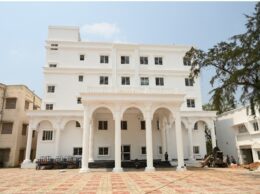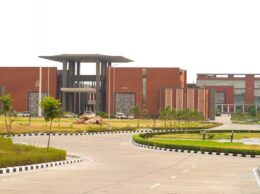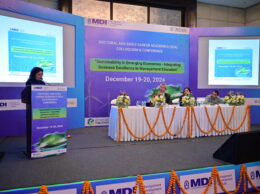CHENNAI : Indian Institute of Technology Madras (IIT Madras) Department of Humanities and Social Sciences has launched a Centre for Indian Knowledge Systems. It was inaugurated by Dr. Vinay Sahasrabuddhe, President, Indian Council of Cultural Relations (ICCR), New Delhi and Shri Kumar Tuhin, Director General, Indian Council of Cultural Relations, New Delhi.
The Centre will focus on four thematic areas:
- Mathematics and Astronomy in India,
- Architectural Engineering, Vāstu and Śilpa-śāstra,
III. Indian Political and Economic Thought,
- Indian Aesthetics and Grammatical Traditions.
Address the inaugural event on Saturday (6th August 2022), Dr. Vinay Sahasrabuddhe, President, Indian Council of Cultural Relations (ICCR), emphasized the need for a deeper study of India’s contribution to the world in the fields of science, technology, architecture, linguistics, arts, culture, economics, and politics, among other areas, and for disseminating the findings to the broader public.
Dr. Aditya Kolachana is the Principal Investigator of the Centre. The other faculty members from IIT Madras in this Centre include Prof. Arun Menon, Prof. Manu Santhanam, Prof. Santosh Kumar Sahu, Prof. Sudarsan Padmanabhan, Prof. Rajesh Kumar, and Prof. Jyotirmaya Tripathy. The Centre is funded by the Indian Knowledge Systems Division of the Ministry of Education, Government of India.
Speaking during the occasion, Shri Kumar Tuhin, Director General, ICCR, discussed the importance of collaboration between CIKS, IIT Madras and ICCR for creating an awareness among international audience regarding India’s rich heritage and culture.
Shri Kumar Tuhin and Prof. Raghunathan Rengaswamy signed a MoU to formalise collaboration between ICCR and IIT Madras.
Prof. Raghunathan Rengaswamy, Dean (Global Engagement), IIT Madras, exhorted the Centre to conduct quality research in Indian Knowledge Systems. He also spoke about the role of the Centre to create a conducive environment for foreign students to study in India and in the internationalization of Indian campuses.
The Key Outcomes envisaged from this Centre include
Ø Research output: The Centre aims to publish quality research related to Indian Knowledge Systems, and to disseminate the findings by hosting academic seminars and conferences. The research will involve collaborations with outside scholars and institutions.
Ø Teaching output: The Centre will initially design and offer courses related to the thematic areas to the students of IIT Madras. Subsequently, these courses are planned to be offered on the NPTEL platform for wider dissemination.
Ø Public outreach: The Centre plans to host workshops to familiarise school teachers and students with various aspects of Indian Knowledge Systems. Further, the Centre plans to reach out to the public via popular writings, social media posts, etc.









